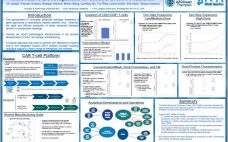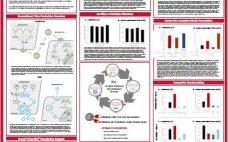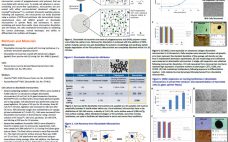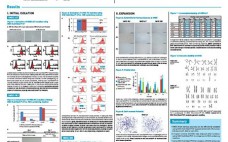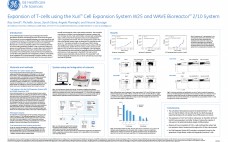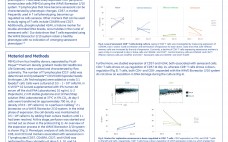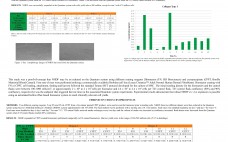For many years, the primary forms of cancer treatment have been chemotherapy, radiation, and surgery. An amazing breakthrough known as chimeric antigen receptor (CAR) T-cell therapy is being studied in the treatment of various types of cancer, including acute and chronic lymphoblastic leukemia, non-Hodgkin lymphoma, myeloma, and solid tumors. Developing innovative advanced therapies is one of our greatest opportunities to dramatically improve patients’ lives. WuXi Advanced Therapies recently announced the expansion of its service capabilities by offering a fully integrated…
Cell Therapy
High Titer Recombinant Lentivirus and Adeno-associated Virus Production for Therapeutic Applications
Increase your recombinant lentivirus and adeno-associated virus (AAV) production with a novel transfection formulation, TransIT-VirusGEN® Transfection Reagent, specifically designed for large-scale virus production to support gene and cell therapies. This poster highlights TransIT-VirusGEN® for use in adherent or suspension cell culture platforms along with enhancers that significantly increase functional virus titers over PEI based formulations. Testing was performed with multiple serum-free media formulations and examined using different plasmid DNA concentrations to better address compatibility within various workflows. Download the poster…
Expansion, Recovery and Characterization of hMSCs on Dissolvable Microcarriers for Bioprocess Applications
Human mesenchymal stem cells (hMSCs) are currently the most common adult stem cell type used for cell therapy applications due to their regenerative properties and ability to differentiate into multiple cell lineages (adipocyte, chondro¬cyte, and osteocyte). Traditionally, hMSCs have been cultured on two-dimensional cell culture platforms using serum-containing medium. Although these platforms can be used successfully for small-scale expansion of hMSCs, other platforms will be required to generate the quantity of cells required to support the increasing number of clinical…
Growth Projections for the Regenerative Medicine Market
One of the fastest growing medical markets with great potential, regenerative medicine treats chronic diseases that were once untreatable. Therapy using live cells is increasingly used to replace damaged tissue, deliver gene therapies to target tissues and organs, and stimulate self-healing along with a number of other applications. View the full article below – Login Required Reference 1 Regenerative Medicines Market: Global Opportunity Analysis and Industry Forecast, 2015–2022. Allied Market Research: Pune,Maharashtra, India: August 2016; www.alliedmarketresearch.com/regenerative-medicines-market. 2 Chartrain NA, Williams…
A Xeno-Free Culture System for hMSC from Various Sources Suitable for Initial Isolation and Expansion Toward Clinical Applications
Human mesenchymal stem cells (hMSC) are multipotent adult stem cells present in a variety of tissue niches in the human body. hMSC have advantages over other stem cell types due to the broad variety of their tissue sources, since they are immuno-privileged, and for their ability to specifically migrate to tumors and wounds in vivo. Due to these traits hMSC have become desirable tools in tissue engineering and cell therapy. In most clinical applications hMSC are expanded in vitro before…
Expansion of T-cells using the Xuri Cell Expansion System W25 and WAVE Bioreactor 2/10 System
Immunotherapeutics include drugs and biologics that render therapeutic benefit by harnessing the power of the immune system. The promise of immune-mediated therapies is to target specificity with a consequent reduction in off-therapeutic effects. Immunotherapeutic products can be classified broadly into (1) active immunotherapy (therapeutic vaccines), (2) adoptive cellular immunotherapy (transfer of immune cells, genetically modified T-cells or precursor cells) or (3) passive immunotherapy (antibody or receptor ligand administration). Recent scientific advances have led to clinical trials of both active and…
T Cells Expanded in the WAVE Bioreactor™ 2/10 System Maintain a Healthy Phenotype
T cell immunotherapy often requires the expansion of a small select starting population in vitro. To achieve therapeutic doses, this population is required to undergo multiple and rapid rounds of replication. Rapid T cell expansion raises the possibility of inducing senescence or an aged phenotype, both of which are detrimental to the recipient patient. The WAVE BioreactorTM System is often used for the final expansion phase before patient infusion and we have analysed the aging characteristics of T cells that…
Transfer of Hepatic Progenitor Stem Cell Culture Process from Multitray Stacks to the Integrity® Xpansion™ Multiplate Bioreactor
Scale-up a stem cell process may be challenging: small variations in physicochemical parameters (surface characteristics, pH and dissolved oxygen) can heavily impact stem cell growth and behavior. The Integrity® Xpansionâ„¢ multiplate bioreactors have been designed to enable an easy transfer from multiple-tray stacks process by offering the same cell growth environment: stacked hydrophylized polystyrene plates in a compact and closed system (from 10 to 200 plates per bioreactor equivalent respectively to 6120cm² and 122400cm²). As there is no headspace between…
Culture of Normal Human Dermal Fibroblast Cells in a Functionally Closed Automated Cell Expansion System
The Quantum Cell Expansion System is a functionally closed and automated hollow-fiber bioreactor system that is designed to expand both adherent and suspension cells in a reproducible manner. The hollow-fiber membrane requires a coating agent to help facilitate cellular adherence when culturing an adherent cell type such as MSCs. Pooled human cryoprecipitate (CPPT, Bonfils Blood Center) was examined as an alternative to FN because it is a rich source of extracellular matrix components, including fibrinogen (Freedman, 2010), and also because…

